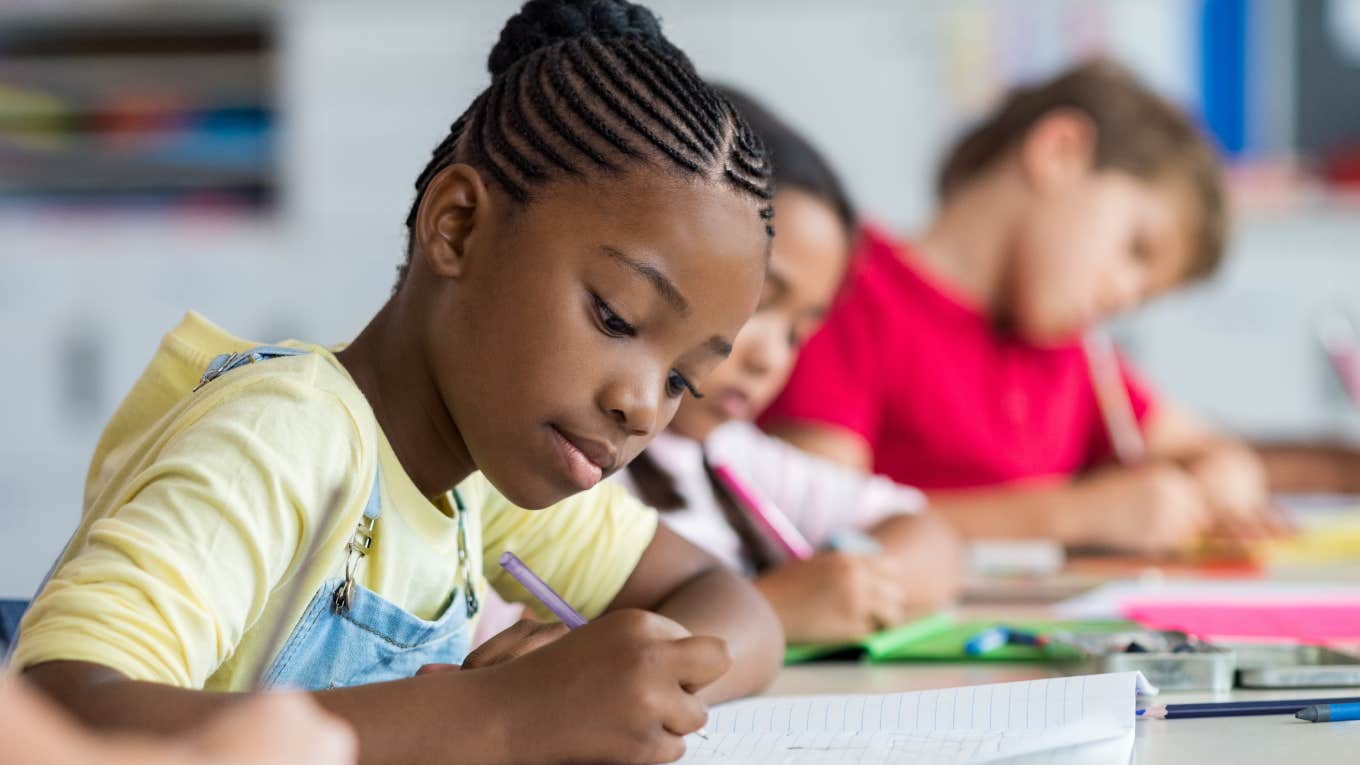Woman In The Gifted Program As A Child Explains That The True Purpose Was Not To Help Smart Kids Do Better
She pointed out that many students in gifted programs were just given assignments to occupy their time.
 Ground Picture / Shutterstock
Ground Picture / Shutterstock Gifted programs in schools have long been a topic of debate and discussion among parents, teachers, students, and school administrators. A plethora of studies and statistics have time and time again proven that gifted programs aren't as helpful as people seem to think.
A woman named Desi, who was one of those so-called gifted students during her adolescence, recently revealed exactly what the true purpose of the programs really is.
She revealed that gifted programs don't help smart kids do better in school.
In Desi's video, she responded to another creator who questioned the purpose of gifted programs in schools. Desi explained that gifted students who often understood the concepts quickly would end up getting bored and, therefore, begin disrupting the class.
"Not just disrupting class by making noise, spinning in your chair, that sort of thing. You start to ask the teacher too many questions, too many in-depth questions. Answering your questions is taking up time where she can actually be teaching the rest of the kids what they're supposed to know," Desi recalled.
Once teachers discover that it doesn't take gifted students long to understand the concepts they're being taught, they no longer need to be in the classroom at all.
"They're gonna give us the numbers on the standardized test, just give them the freaking test. Tell them that they're uber special, give them IQ tests, just give them endless supplies of science projects and arts and crafts."
Desi pointed out that when she thinks back to her time in the gifted program at school, none of the assignments and projects she completed ever progressed her or the other kids' knowledge — it was just to keep them busy.
"The point of the gifted and talented was not to support the gifted and talented," she insisted. "It was to seclude us from the 'normies.'"
These gifted programs are flawed in a variety of ways.
While many parents strive to have their children put in gifted programs at school, it's been shown that most of the time, students in these programs actually end up suffering more than if they were just kept in regular classrooms. Most often, gifted students end up becoming anxious, insecure, and depressed adults because of how much value was placed on their intelligence during childhood.
Gifted programs are also notoriously known for exacerbating segregation in schools.
In New York City in 2019, The School Diversity Advisory Group, a group commissioned by then-Mayor Bill de Blasio, recommended doing away with all gifted and talented programs. That same year, Seattle attempted unsuccessfully to eliminate its programs as a way to alleviate school segregation.
According to federal data, nearly 60% of students in gifted education are white compared to 50% of public school enrollment overall. Black students, in contrast, made up 9% of students in gifted education, although they were 15% of the overall student population.
"You know, where there’s a magnet school of the gifted, they’ll oftentimes put it in a mostly brown or Black school, but you walk down the hall and the gifted program will be mostly white faces," Marcia Gentry, a professor of education studies and the director of the Gifted Education Resource Institute at Purdue University told Education Week.
"People talk a lot about, well, if we get brown and Black kids in [gifted education], it’ll be good for the brown and Black kids, but it goes further than that," she continued. "It’s actually good for the program because it brings diversity of views and discussion and of culture. So not only does it enrich the kids [of color] we put in there, but it makes the program better for all the kids who are there."
After her original TikTok blew up, Desi posted a follow-up video responding to comments.
She clarified that she was referring to the gifted and talented programs that existed in many elementary and middle schools, not high school AP or honors classes.
Desi explained that while it's not a bad thing that the gifted program was "just special ed on the other end of the curve," we need to get into the habit of calling out these things when we see them. She also acknowledged that school districts all have different levels of resources, which made some gifted and talented programs better and more productive than others
Desi also responded to comments left by "gifted" viewers who argued that they never caused disruptions in class, and would simply sit at their desk reading a book. To that, Desi remarked that just the mere presence of a student doing something differently than everyone else was a distraction in itself.
"You weren't moving with the natural ebb and flow of classroom participation, therefore you're a problem," she claimed. "Now, did I like being a part of the gifted and talented program? Absolutely. Would I go back and do anything different? Probably not."
Desi's own experience in a gifted and talented program aside, the reality of how often these types of programs only prove to alienate and worsen a child's educational development means that there needs to be a deeper look into the system. If these programs truly need to exist in schools, then there needs to be a way to actually challenge these kids and prepare them both intellectually and socially for what's to come as they grow up and experience more of this world.
Nia Tipton is a Chicago-based entertainment, news, and lifestyle writer whose work delves into modern-day issues and experiences.

